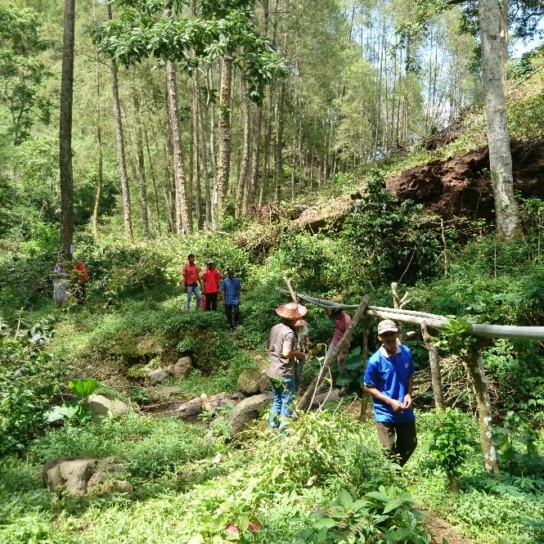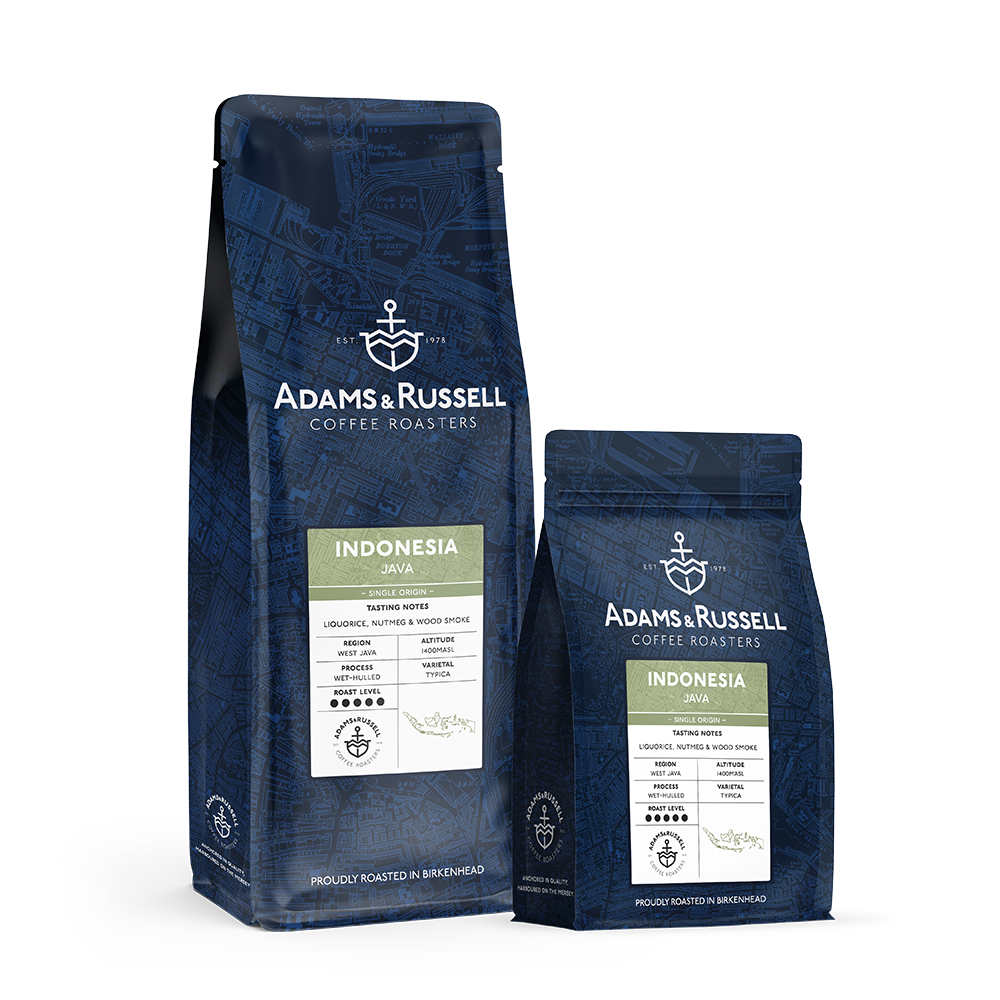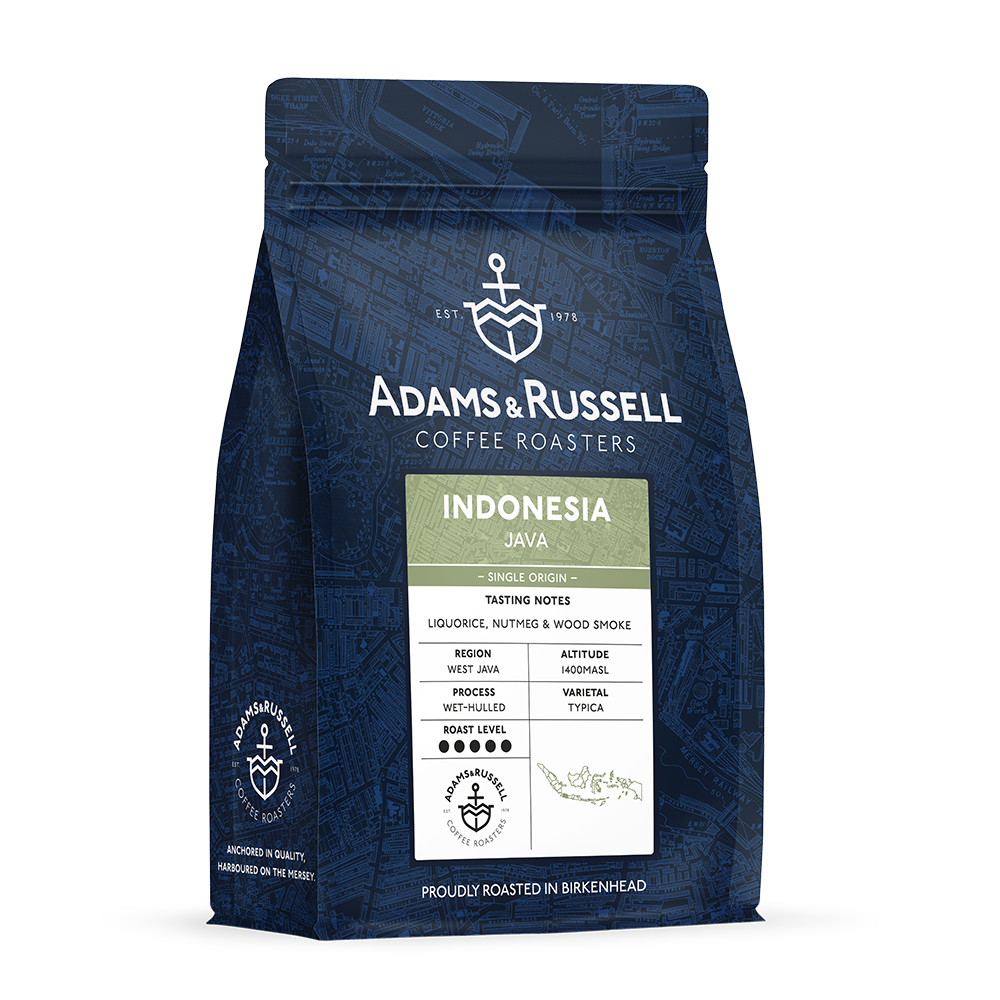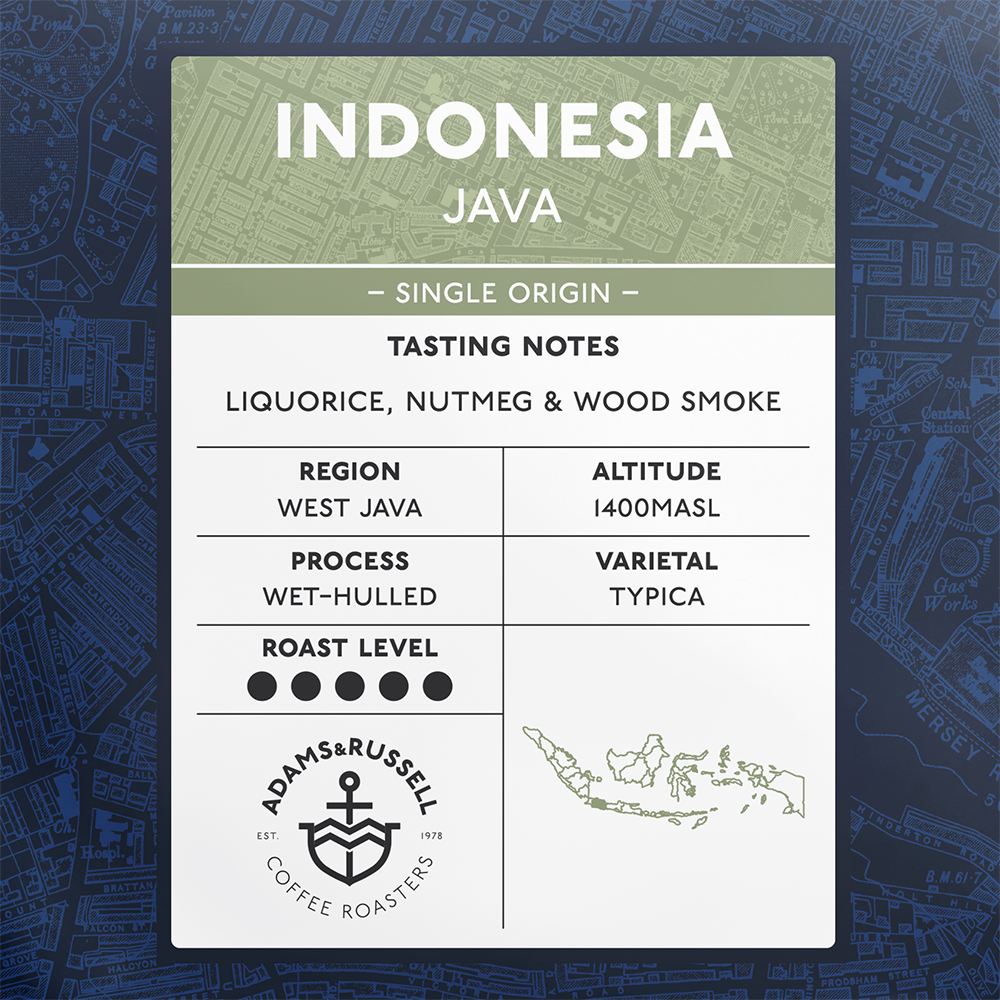ROAST & PROFILE

java
REGION
west java
ALTITUDE
1400masl
TASTING NOTES
liquorice, nutmeg & wood smoke
VARIETAL
typica
PROCESS
Wet-Hulled
ROAST LEVEL

Indonesia Java : Processing & Taste Profile
Java coffee processing typically utilises a classic washed processing method, sometimes with an added controlled fermentation to bring out a slightly more intense sweet and fruity flavours. Whilst most of the coffee grown in Indonesia is lower-grade Robusta for the commodity markets there are some areas where higher grade coffees are grown.
Our Java is a higher roast bean, offering earthy, sweet tobacco flavours. It has a heavy, strong body and a very muted level of acidity. If you’ve been buying pre-ground coffee from the supermarket, and you enjoy a high roast Italian-style coffee this might just be the coffee that raises your game, particularly if you’re able to grind the beans yourself.
How To Brew
Brew in a cafetiere for a classic longer drink which brings out the rich, aromatic, almost spicy flavours this coffee has to offer.


History Of Indonesian Coffee
Arabica coffee seedlings from Yemen were brought to Java in 1696 by Dutch traders and before long became the first major coffee producer and exporting region outside of East Africa and Arabia. The coffee trade in Java is tied to its colonial history, and many modern plantations still operate out of the original Dutch colonialists’ estates.
Java has rich volcanic soils full of the perfect nutrients for coffee growing. The cool microclimates on the island allow for slower maturation of the beans which typically develop greater sweetness, and nutty, chocolate flavours upon roasting.
Like much of the modern coffee industry, in Java it is largely controlled by larger plantations, which exist on the old colonial estates and who buy beans from hundreds of local farms. These estates sort for sizing and grading for consistency, and they can ensure compliance with certifications like Rainforest Alliance.




8 reviews for Indonesia Java
Will Benton –
Wow! Even opening the pack is quite an experience, the smell is fabulous. If you’re a lover of powerful dark roast coffees this is the one for you. For my own tastes this works well as the basis of a big milk drink such as a latte, but is too dominant in a flat white, or cortado. I purchased beans, for use with a grinder and espresso machine.
Marcin –
Exactly as described deep earth notes, low acidity. Very satisfied, definitely will get more.
Kim –
Best coffee i have ever had! Tastes like espresso but i make it with my Aeropress….
Richard Hallett (verified owner) –
I agree totally with the other comments, except that it’s not to our taste.
AlanD (verified owner) –
For my taste this coffee is close to perfect, what I need is to get my machine finely tuned to get a perfect cup of coffee. It’s a very rich dark coffee that has a punchy depth to it which is to my liking.
theunloyalnerd (verified owner) –
Great Coffee!
It’s actually the second coffee ever grown in the history of the Business, it’s great in the traditional Arabic way (You might know it as Turkish). It’s definitely my favourite coffee in this price range which really makes me happy as I can get it all the time. I would like to know more about the sourcing and who they get it from. It’s a great high roast coffee and the only one they sell. You can actually make it taste like espresso just using a french press or even Turkish but it works in heavy milk drinks as well. I cannot recommend this coffee enough.
Sharon (verified owner) –
Tried this coffee because of the low acidity. Lovely medium flavour without any bitterness. Delivery was very quick. I shall be a regular customer of Adams and Russell from now on.
John Welbourn (verified owner) –
Roasted a tad past the second crack. The beans grind very easily, so I had to dial down a notch on my grinder to get a suitable espresso grind. I’m not sure about earthy, dark cocoa flavour description on the bag; The aroma was an intense almond blast from the fresh brewed espresso. Taste to me was light (almost thin), fresh, sweet, ethereal, slightly smoky. It’s spectacularly good as espresso plus milk. The coffee is so good it doesn’t touch the sides on the way down, so I’ll buy at least 1kg next time. It leaves a delighdful, lingering, slightly chalky character on the palate. One of the nicest breakfast “café-au-lait” beans I’ve tasted